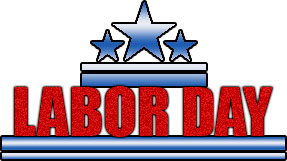News and Notes from The Johnson Center
What Labor Day Means To Us
JCCHD | Mon, September 01, 2014 | [Community][News]Labor Day is the celebration of the American labor movement and it is dedicated to the social and economic achievements of workers. According to the US Department of Labor, “it constitutes a yearly national tribute to the contributions workers have made to the strength, prosperity, and well-being of our country.”

This year, as we reflect on the holiday and its meaning, we can’t help but think about the thousands of adolescents and adults who are eager to make such a contribution, but are prevented from doing so because of the lack of opportunities and misperceptions about their abilities. In June of 2012, the US Bureau of Labor Statistics reported that just 32.1% of Americans who have a disability are employed as part of the nation’s workforce. Autism Speaks subsequently reported that 9 out of 10 adults with autism were either unemployed or underemployed, regardless of their IQ or education.
There are several studies published that discuss these statistics and the issues of unemployment, underemployment, pay discrepancies, and the hardships that these issues present to adults with autism. The bottom line is that there are far too many people with autism who are capable of employment who are not given the opportunity to work. This leads to depression, isolation, and financial hardship. What’s more, our country is deprived of the contributions that these potential workers can make. People with autism have a lot to offer, and by failing to offer support, training, and opportunity, we are missing out.
The Johnson Center employs people with autism in our office. We have had young students with autism who are in high school and college complete internships in our office as they prepare to graduate. This issue is personal for many of us, who have teenage and young adult children of our own who have autism. We have seen first hand the challenges these remarkable young people face when seeking employment and the gifts they can bring to the workplace when given the chance.

Sometimes the issue is ability and support. There are an increasing number of colleges that offer programs and support for young people with autism. There are a growing number of high school and college programs that are taking innovative steps to prepare their students for the workforce. There are vocational rehabilitation counselors who can provide assistance in finding and training for the right job. And there are some families who take matters into their own hands and start their own businesses.
Sometimes the issue is opportunity. Most employers don’t know the facts when it comes to employing a person who has autism. They don’t know that there are many jobs that people with autism may be uniquely qualified to do and they are unaware of the benefits such a hire may provide them.
We experienced this lack of knowledge recently when we reached out to a local pet store chain that had announced they were hiring. We know a young man with autism who is very interested in and skillful with animals. He is a hard and dependable worker and we hoped to match his skills with his interest and help him find a job he would enjoy and excel at doing. We called all six of the locations of the chain and were summarily dismissed as soon as we explained what we were trying to do. One store manager even hung up on us as we explained why we were calling.
So we are taking this Labor Day as a call to action: learn the facts about autism and employment and encourage your employer, businesses you frequent, and friends and family to consider employing people with autism. Connect them with resources and vocational training centers that can offer support. We all have a vested interest in opening doors for people with autism; it will help our loved ones and help our communities. And it will allow thousands of people with autism to contribute to the “the strength, prosperity, and well-being of our country.”
Resources:
In addition to the links in the article above, here are some resources to learn more on the issue…
http://www.dps.missouri.edu/Autism/AutismFactSheet2011.pdf
http://www.dol.gov/odep/
http://www.disabilityscoop.com/2013/08/05/with-training-jobs/18446/
http://www.npr.org/blogs/health/2013/04/22/177452578/young-adults-with-autism-can-thrive-in-high-tech-jobs
http://www.grandin.com/inc/transition.employment.autism.aspergers.html
http://www.huffingtonpost.com/2012/09/27/autism-employment-white-collar-jobs_n_1916611.html



